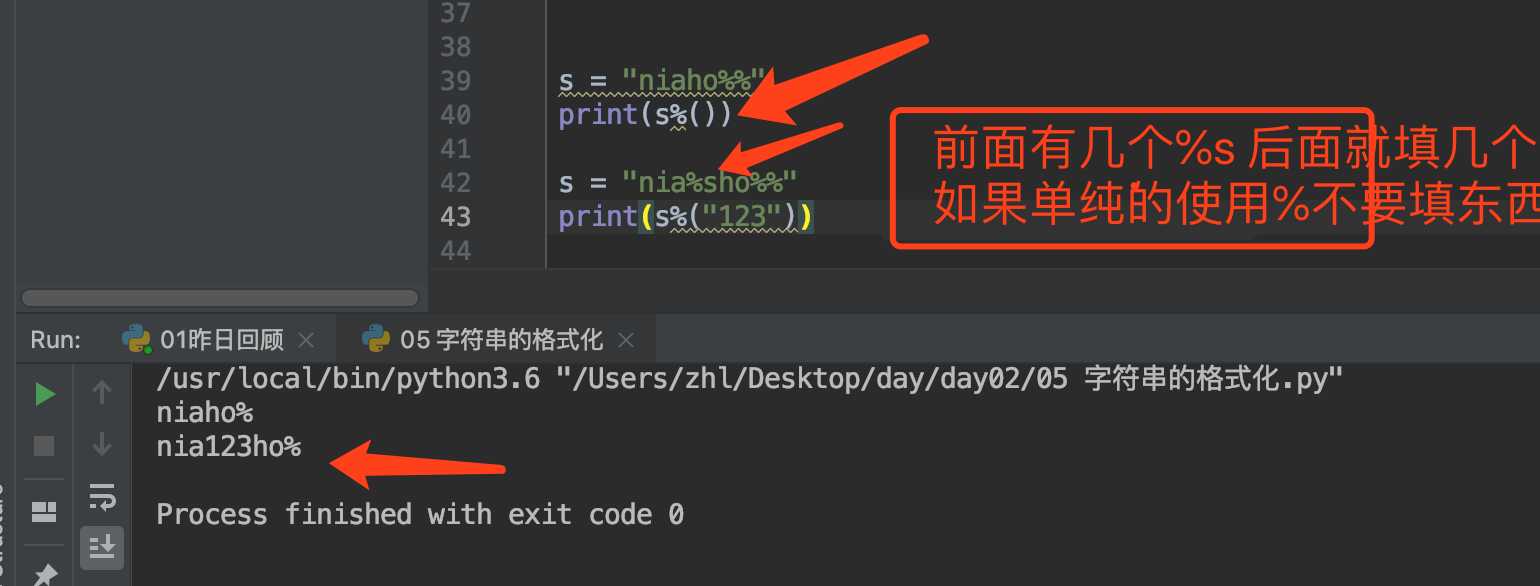while 循环,运算符,字符串的格式化
Posted hualibokeyuan
tags:
篇首语:本文由小常识网(cha138.com)小编为大家整理,主要介绍了while 循环,运算符,字符串的格式化相关的知识,希望对你有一定的参考价值。
1.while 关键字 (死循环)
while 条件:
循环体
条件:只要条件是 Ture就可以循环. ====条件都会转化为布尔值,只有 Ture 或者 false 其中包含如果是数字的话,除了 0 是 false 其他都是 Ture.==
==只要是字符串,除了啥也不填""是 false 其他都是 Ture.====
具体程序
while True:
print("我")
print("是")
print("一")
print("颗")
print("小")
print("小")
print("的")
print("石")
print("头")- 数字是"1" ,可以执行
while 1:
print("我")
print("是")
print("一")
print("颗")
print("小")
print("小")
print("的")
print("石")
print("头")- 数字是 0 ,不可以执行
while 0:
print("我")
print("是")
print("一")
print("颗")
print("小")
print("小")
print("的")
print("石")
print("头")
# 程序不执行- 随便的字符串,可以执行,就算是空格也能够执行
s = "A"
while s:
print("我")
print("是")
print("一")
print("颗")
print("小")
print("小")
print("的")
print("石")
print("头")- 如果什么都不写,程序不执行
s = ""
while s:
print("我")
print("是")
print("一")
print("颗")
print("小")
print("小")
print("的")
print("石")
print("头")
# 程序不执行- while 中几种常见的形式
第一种:下面的代码中,在输出 1 之后,while 循环一直被执行,进入死循环,后面的 print(2),一直不执行
print(1)
while 1:
print("我")
print("是")
print("一")
print("颗")
print("小")
print("小")
print("的")
print("石")
print("头")
print(2)
1
我
是
一
颗
小
小
的
石
头
我
是第二种: 要是想要输出 2 只能是条件为假的时候
falg = "suibian"
while falg:
print(1)
print(2)
当条件为真时,就执行 1111111 一直下去
若是下面的 false 那就输出 2
falg = ""
while falg:
print(1)
print(2)练习
输出 1 2 3 4 5的正确排序
count = 1
while count <= 5:
print(count)
count = count + 1将上面题目,用倒叙的手法
count = 5
while count >= 1:
print(count)
count = count - 12.break , continue
定义: 终止当前循环,break 下面的 代码不会进行执行(1 只是被当成 Ture的条件)
while 1:
print(123)
print(456)
break
print(789)
print(111)
#123
456
111continue: 直接伪装成循环体中的最后一行代码 continue下面的代码不会执行(跳出当前循环,继续下次循环,比如跑步,突然 continue 出现在半路跑道,那么就要从头开始继续跑半截 再半截 以此循环)
while 1:
print(123)
print(456)
continue
print(789)
#
123
456
123
456
123
456
一直循环
break:打破当前循环,终止当前循环.
continue 跳出当前准备循环,继续下次循环
相同之处 : 他们以下的代码都不执行
字符串的格式化
我们在遇到制作名片的问题时,一般的过程如下
\\n 换行
a = "--------ofo---------"
b = "name"
c = "age"
d = "job"
e = "--------end--------"
name = input("name:")
age = input("age:")
job = input("job:")
print(a + "\\n" + b + name + "\\n" + c + age + "\\n" + d + job + "\\n" + e + "\\n" )但是这样的过程过于繁琐,于是有了下面的字符串格式化
格式化的优点:能够对多个子字符串自由排列 组合 转换格式

s = '''--------ofo-------
name:%s
age:%s
job:%s
-------end------'''
name = input("name")
age = input("age")
job = input("job")
print(s%(name,age,job))
#
namezh
ages
jobx
--------ofo-------
name:zh
age:s
job:x
-------end------
这里对于我来说有些难理解
# num = input("学习进度:")
# s11 = "黑哥的学习进度:%s %%"
# print(s11%('234'))s = f"今天下雨了input('>>>')"
print(s)s11 = "大哥黑的学习进度为:%s"
print(s11%("不错"))s = f"123"
print(s)# %s 是占的字符串类型的位置
# %d 是占的数字类型的位置
# %% 转换成普通的%号
# 按照位置顺序传递,占位和补位必须要一一对应while else
while True:
print(E)
else:
print(F)
while True:
print(A)
break
print(B)运算符
算数运算符
/ (python2 中获取的值是整数 , python3 中获取的是浮点数)
// 整除—地板除
print(5//2)% 模 取余
**幂(次方)
比较运算符
<
>
== 等于
!= 不等于
>= 大于等于
<= 小于等于
赋值运算符
= 赋值
+= 自加
a = 10
a += 1 (相当于 a = a + 1)
print(a) -= 自减
*= 自乘
逻辑运算符
and (与/和) or (或) not (非)
and : 都为真的时候取 and 后面的值
? 都为假的时候取 and 前面的值
? 一真一假取假
print(3 and 4)
print(0 and False)
print(0 and 4)print(3 and 9 and 5 and 0 and False)
print(5 and False and 9 and 0)
print(1 and 2 and 5 and 9 and 6)Or : 都为真的时候取 or 前面的值
? 都为假的时候取 or 后面的值
? 一真一假取真
print(1 or 0)
print(1 or 2)
print(0 or False)print(1 or 9 or 4 or 0 or 9)
#1级别: () > not > and > or
从左往右执行 : (如果你愿意一层一层的剥开我的心~~~)
print(9 and 1 or not False and 8 or 0 and 7 and False)
# 1成员运算符
in 存在
not in 不存在
s = "alexdsb"
if "sb" not in s:
print(True)
else:
print(False)总结
运算顺序:() > not > and > or 从左向右执行
算数运算符 : + - * / // ** %
比较运算符: > < >= <= == !=
赋值运算符: = += -= *= /= //= **= %=
逻辑运算符: and or not () > not > and > or
成员运算符: in not in编码初始
理解
今 0101
天 0110
晚 0010
上 0001
去 1001
便 1000
利 0100
店 1111
00000101 00000110 0010000110011001
linux -- utf-8
mac -- utf-8
windows -- gbk四种(重要)
ascii (老美)不支持中文
gbk (国标) 英文 8位 中文16位
unicode (万国码)英文16 位 中文 32位
utf-8 (可变长的编码) 英文8位 欧洲文 16位 亚洲24位单位转换
1字节 = 8位
1Bytes = 8bit ***
1024byte = 1KB
1024KB = 1MB
1024MB = 1GB
1024GB = 1TB
1024TB = 1PB
1024PB = 1EB
1024EB = 1ZB
1024ZB = 1YB
1024YB = 1NB
1024NB = 1DB以上是关于while 循环,运算符,字符串的格式化的主要内容,如果未能解决你的问题,请参考以下文章